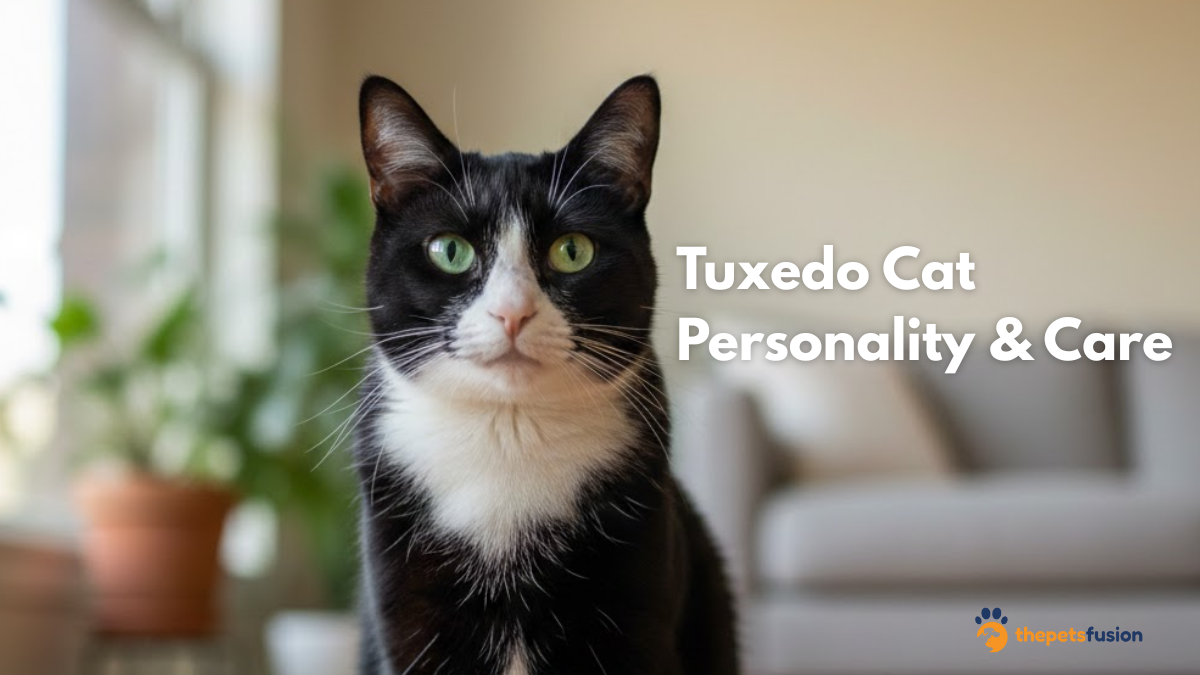Find out 7 pet health care tips for busy professionals (2025 guide) to maintain your pets’ happiness and health, including how to give them the best care possible through proper diet, exercise, and essential pet hygiene. Having a pet is similar to having a faithful friend who is there for you no matter what. Whether you have a talkative parrot, an inquisitive cat, or a playful puppy, pets add happiness and company to your life. However, great enjoyment also comes with great responsibility. To keep your pet happy and healthy, you must know how to care for them. There is much to learn about time-saving pet care, from providing a balanced pet diet to ensuring adequate exercise. At first, it may seem overwhelming, but don’t worry—you’re not by yourself. You can provide the best life for your pet by being knowledgeable and grasping the fundamentals.
7 Tips for Taking Care of Pets Now as a Busy Professional
1. Understand the Basics of Pet Care
Ensure a secure environment for pets by following several steps. Start by creating a safe and relaxing space that meets their needs.
The Importance of Regular Vet Visits
Regular veterinary visits are essential. They facilitate early detection of possible health problems, timely treatment, and avoidance of more serious issues.
Annual Exams:
Make an appointment for your pet’s yearly examination with your veterinarian to monitor their general health and identify any possible problems before they worsen. Older patients or those with specific medical conditions might require more frequent checkups.
Vaccinations:
Your pet can avoid some diseases by receiving regular vaccinations. For information on the vaccines your pet needs, speak with your veterinarian.
Preventive Care:
To keep your pet healthy, routine veterinary checkups cover preventive procedures like parasite control, dental care, and diet.
Vaccinations and Preventive Care
Both of these are essential parts of time-saving pet care. They assist in managing possible health risks and preventing common diseases.
Core Vaccines:
These vaccines guard against serious illnesses. For dogs, these include parvovirus, rabies, and distemper; for cats, they include feline herpesvirus, calicivirus, and panleukopenia.
Non-Core Vaccinations:
Different vaccines may be recommended depending on your pet’s lifestyle and risk factors. To ascertain necessity, talk about these with your veterinarian.
Control of Parasites:
Frequent treatments stop flea, tick, and worm infestations. For appropriate options, speak with your veterinarian.
Routine Dental Care:
Routine dental examinations and cleanings lower the risk of oral disease by maintaining healthy teeth and gums.
Dog Proof Your Home
Dog proofing your home ensures a safe environment for your pet. Implement steps to prevent accidents and hazards:
Secure theTrash:
Use pet-safe trash cans or move trash cans out of the way to prevent ingestion of harmful items.
Remove Toxic Plants:
Identify and remove plants that are toxic to dogs. Examples include lilies, poinsettias, and sago palms.
Manage Electrical Cords:
Keep cords out of reach by using concealers or securing them to walls to prevent chewing incidents.
Special Tips for Puppies
Because they are active and inquisitive, puppies need extra safety measures.
Baby Gates:
Install baby gates to prevent falls down stairs and to limit access to specific areas.
Toy Selection:
To prevent choking hazards and small part ingestion, select safe, long-lasting toys made for puppies.
Puppy-Proofing Checklist:
Examine and update your home frequently to meet the needs and activities of your developing puppy.
2. Nutritional and Hydration Support
A proper diet and hydration are essential for a pet to be healthy. When selecting a diet, there are a few critical factors to take into account:
Balanced Pet Diet
Life Stage Nutrition:
Make sure the diet you choose is appropriate for your pet’s stage of life. To support their rapid growth, puppies and kittens need diets high in calories and specific nutrient ratios. To stay healthy, adult pets require a balanced diet. Foods for senior pets supplemented to help joint health and cognitive function are beneficial.
Special Diets for Health Issues:
Choose diets to address pets’ needs with particular medical conditions, such as diabetes or allergies. Low-carb foods are best for controlling diabetes, while hypoallergenic foods can reduce the symptoms of food allergies.
Ensuring Fresh Drinking Water
Ensuring your pet has access to fresh drinking water is essential for their health. Dehydration can lead to serious health problems. Clean and refill your pet’s water bowl regularly to maintain hygiene and encourage hydration. For multi-pet households, consider multiple water stations to ensure all pets have easy access to water.
3. Environmental Safety and Comfort
Learn how to make a secure, comfortable space for your pet to thrive. Discover essential tips to ensure your pet’s well-being, from securing litter boxes to providing proper identification.
Providing a Comfortable Shelter
Ensuring your pet has a comfortable shelter is essential for their comfort and well-being. A clean, dry, and warm resting place is a basic need. Dogs help from regular exercise and mental stimulation through activities like walks and play. A cozy, clean bed provides a peaceful sleeping environment for pets, which enhances their overall well-being.
Following these guidelines creates a nurturing environment where your pet feels safe and comfortable.
4. Physical Activity and Cognitive Engagement
Ensuring your pet gets adequate physical activity, cognitive engagement, and mental stimulation is vital for overall well-being. Let’s explore effective daily routines and enrich your pet’s environment.
Daily Exercise Routines
Regular exercise keeps your pet physically fit and mentally enriched. Dogs need to have some daily activity.
Physical Activity
Exercise maintains health, reduces stress, and enhances mood. Walking your dog daily can be a great time for exercise and bonding between owner and pet.
Mental Stimulation
Incorporate mental challenges into your pet’s routine. Obedience training, agility exercises, and interactive toys can keep your pet engaged and prevent boredom.
Enriching Your Pet’s Environment
A stimulating environment significantly reduces stress and boredom for pets.
Environmental Enrichment:
Rotate toys regularly and introduce puzzle toys to entertain your pet. Creating a varied space ensures continuous engagement.
Social Interaction:
Dogs thrive on social interaction. Spending quality time with your pet or arranging playdates with other dogs provides essential social stimulation.
Don’t miss: 9 Playful Pet Lifestyle Hacks for Happier Pets in 2025
5. Training and Social Skills
Training and socializing your pets are vital steps in ensuring the well-being and happiness of your household.
Essential Dog Training Tips
Start Early:
For best results, socialize kittens between 4 and 9 weeks and doggies between 4 and 12 weeks, although socialization is possible at any age. It is recommended that pets not be socialized with pets outside their immediate family until they are fully vaccinated. Still, they can be introduced to other humans at a young age.
Positive Reinforcement:
Use positive reinforcement methods to reward and encourage good behavior, such as praise, extra attention, and treats.
Consistency:
Maintain consistency in training by setting realistic expectations and practicing skills regularly to ensure a well-behaved pet.
Gradual Exposure:
Introduce new experiences gradually to avoid overwhelming your pet by starting in a controlled environment and gradually increasing their exposure to new people, pets, and places.
Controlled Interactions:
Allow pets to interact with others in controlled situations. Use leashes or baby gates to manage early encounters.
Group Classes:
Enroll your pet in groups or playgroups to help it become familiar with other animals and people.
Frequent Outings:
Regularly take your pet to pet-friendly places to expose them to various environments while building their social skills.
Monitoring Behavior:
Monitor your pet’s behavior during social interactions, intervening to ensure positive experiences and prevent stress.
Practical training and socialization create secure, happy pets and strengthen their bond with you.
6. Essential Pet Hygiene and Health
Essential pet hygiene and health practices are essential to ensure your pet thrives. Regular attention to cleaning and preventive health measures helps prevent illness and promotes a healthy environment.
Disease Prevention
Clean and disinfect pet facilities regularly to prevent the spread of disease. This includes cleaning food bowls, water bowls, surfaces, and toys. Also, clean litter boxes and outdoor areas frequently.
Hand Washing
After handling pets, their food, or waste, please wash your hands with soap and water. This helps prevent the spread of germs like E. coli and Salmonella. Be sure to encourage others to do the same to reduce health risks.
Clean Environment
Maintain a clean environment for your pet. Clean litter boxes regularly to prevent dirt and bacteria buildup. Wash pet toys to remove dirt and germs. Keep outdoor areas free of debris to reduce the risk of pests.
Grooming Essentials
Regularly bathing pets helps maintain hygiene, especially for those stuck in mud or debris. Use pet-safe shampoo and conditioner as needed. Brush their fur to remove dirt and prevent matting. Grooming keeps pets comfortable and their coats healthy.
Dental Care for Pets
Dental care is essential for a pet’s overall health. Brush your pet’s teeth regularly to prevent early plaque buildup. Use a pet-safe toothpaste and toothbrush—supply dental chews to assist in maintaining oral hygiene.
Parasite and Pest Management
Prevent and manage parasites such as fleas and ticks. Use preventative measures recommended by your vet. Check pets regularly for signs of pests: clean living areas and bedding to reduce infestation. Make sure your pet’s environment is pest-free so they can stay healthy and comfortable.
7. Quick Pets Grooming Tips
Here are seven quick pet grooming tips, understand these tips to protect your dog from harm.
- Brush your dog’s coat every day to prevent matting.
- Trim your dog’s hair – but be careful.
- Trim your dog’s nails safely.
- Check your dog’s skin when you groom.
- Teach your dog to enjoy grooming sessions.
- Check your dog’s ears regularly.
- Don’t bathe your dog too often.
Pet Health Care Tips For Busy Professionals
- Establish a routine.
- Hire a dog walker or pet sitter.
- Use doggy daycare services.
- Work from home (when possible)
- Use interactive toys and enrichment activities.
- Delegate responsibilities.
- Exercise before and after work.
- Incorporate training into your daily routine.
Don’t miss: Pet Honesty Hip and Joint Health: 5 Vet-Backed Care Tips
What are Some Basic and Essential Pet Care Tips to Follow
Choose the Right Pet:
Select a pet that fits your lifestyle, home size, and energy level to ensure a good long-term match.
Provide a Nutritious Diet:
Feed species-appropriate, high-quality food based on your pet’s age, breed, and activity level.
Ensure Fresh Water is Always Available:
Hydration is essential for your pet’s health and helps prevent organ issues.
Schedule Regular Vet Visits:
Annual check-ups, vaccinations, and early health screenings ensure your pet’s long-term wellness and catch potential issues early.
Provide Daily Exercise and Mental Stimulation:
Use walks, play, training, or toys to keep your pet physically and mentally engaged.
Maintain Grooming and Hygiene:
Brush fur, bathe as needed, trim nails, and clean ears and teeth to prevent infections and discomfort.
Train and Socialize Early:
Use positive reinforcement to teach good behavior and help pets become confident and well-adjusted.
Offer Love and Attention:
Spend quality time bonding to support your pet’s emotional health and build trust.
Keep Accurate Health Records:
Track vaccinations, medications, vet visits, and any health changes for easy reference and continuity of care.
The Bottom Line
Caring for a pet is a fulfilling experience that enriches your life with happiness and company. You can keep your pets pleased and healthy by knowing their needs, giving them time-saving pet care, and providing essential pet hygiene. Their health depends on a balanced pet diet, frequent veterinary checkups, and enough exercise. Your pets will remain happy if you provide them with a secure, cozy space, socialization, and mental stimulation. Socialization and training are essential for creating a close relationship and a peaceful home. If you are committed and knowledgeable, you can give your pets the happy life they deserve. 7 pet health care tips for busy professionals (2025 guide) helps pet owners maintain their feline’s well-being with simple, time-efficient strategies.





